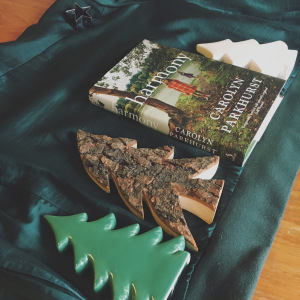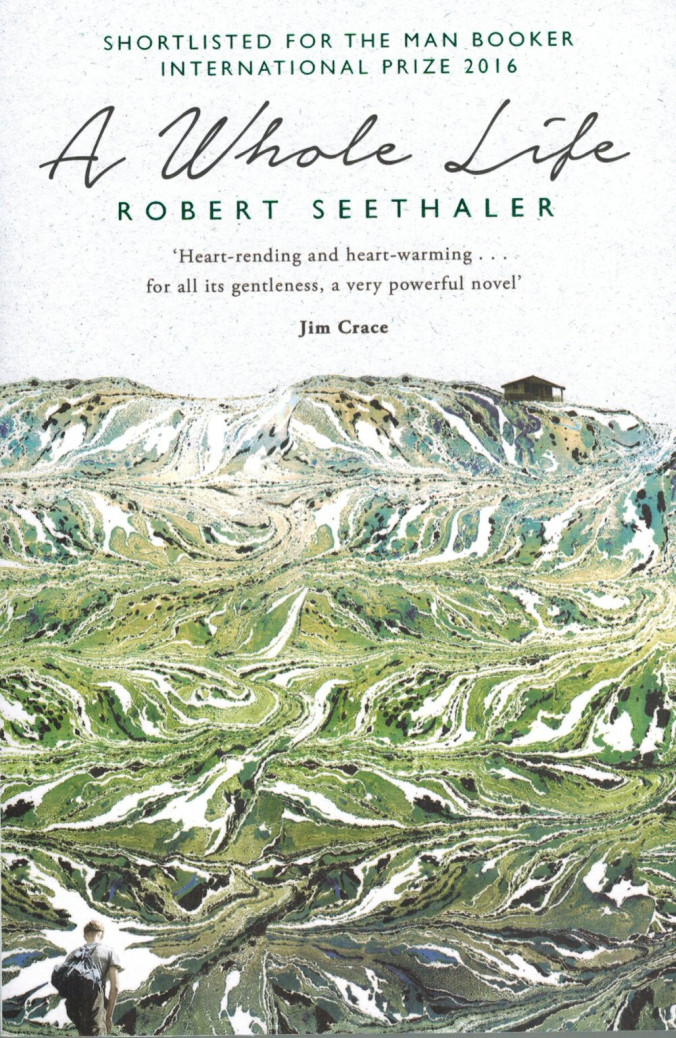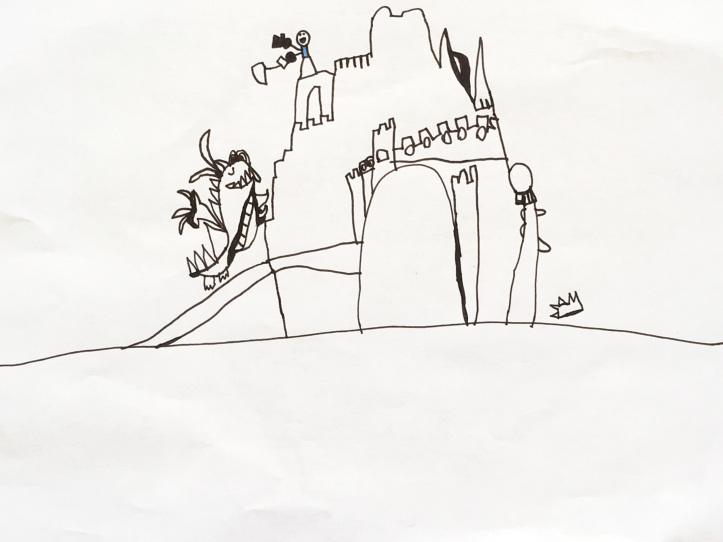 Nixon and Mao: The Week That Changed the World by Margaret MacMillan
Nixon and Mao: The Week That Changed the World by Margaret MacMillan
My rating: 5 of 5 stars
Margaret Macmillan brings us an entertaining and very well written book that details the Nixon opening to China, and how the visit in and of itself changed the world in substantive ways that we are still feeling today. The book title implies a focus on the actual Nixon-Mao meeting, but it brings us so much more than that. The Nixon-Mao meeting ended up being a bit of a substantive disappointment for Nixon. Mao, even in poor health, was simply too cagey to allow the conversation to get into specifics. He outsourced all of the detail work to Premier Zhou en-Lai, and did so, in part, for domestic political reasons. Although not covered in this book Mao would, at a later time, use the Nixon trip as one of several battering rams against Zhou.
Macmillan brings us the back story to the opening, covering the Nixon views on China as he took office after winning the 1968 election. The selection of Henry Kissinger as National Security Advisor brought Nixon together with an individual that is renowned for foreign policy brilliance, but is also renowned for being as much of a publicity seeker as Nixon. While the impetus for the opening came from Nixon it was Kissinger who executed the strategy through negotiations with Premier Zhou en-Lai. The detail work was handled by those two immense personalities, with that interaction providing much of the basis for the summit ending Shanghai Communique.
The book brings us some historical perspective on China, with a strong look at the events leading to the Chinese Communist Party winning the civil war with the Nationalist forces of Chiang Kai-shek, and the follow up to that victory leading to decades of diplomatic isolation between China and the U.S., including the hot war on the Korean peninsula. Without some understanding of that history the significance of the Nixon trip would be a little harder to understand.
For me the star of the show has always been Zhou, who would have to be considered one of the major figures of the 20th century. Zhou was still working one of the greatest high wire acts in political history, navigating through the horrid excesses of the Cultural Revolution, when this diplomatic break through was engineered. Kissinger, in his memoirs, called Zhou one of the most impressive men he had ever met.
“Foreigners who met him generally found him delightful and deeply civilized. Dag Hammarskjöld, the Swedish diplomat who had been the U.N.’s second secretary-general, thought he had “the most superior brain I have so far met in the field of foreign politics.”17 Henry Kissinger, usually quite critical, was completely entranced. “He moved gracefully,” said Kissinger of their first meeting, “and with dignity, filling a room not by his physical dominance (as did Mao or de Gaulle) but by his air of controlled tension, steely discipline, and self-control, as if he were a coiled spring.” Kissinger, who was to have many hours of hard negotiations with Chou, found him “one of the two or three most impressive men I have ever met”—and a worthy adversary. “He was a figure out of history. He was equally at home in philosophy, reminiscence, historical analysis, tactical probes, humorous repartee.” Kindness, compassion, moderation—these were qualities both Chinese and foreigners saw in Chou.”
MacMillan, Margaret. Nixon and Mao: The Week That Changed the World (Kindle Locations 802-804). Random House Publishing Group. Kindle Edition. MacMillan, Margaret. Nixon and Mao: The Week That Changed the World (Kindle Locations 796-802). Random House Publishing Group. Kindle Edition.
The author brings us the complicated goals and objectives of each side, and a fair evaluation of how successful each was in achieving those goals. The clear “bear” in the room was the U.S.S.R., with both sides looking to strike a new equilibrium in world diplomacy by creating a check on Soviet influence and expansion via the new found friendship and joint antipathy towards nations that strove for “hegemony.” Nixon’s “triangulation,” was effective in creating some fear in the Soviet leadership, and without a doubt brought some short term political gains with the Soviets. Nixon was hoping for Chinese help with the intractable North Vietnamese, but on that score he came away disappointed. Zhou was not to be moved on that, but the Chinese, despite not giving Nixon the “help” he sought, took plenty of heat from the North Vietnamese for hosting Nixon while the United States was bombing their country. Zhou made clear that Nixon would leave empty handed on that issue:
“Chou, as he had with Kissinger, refused to commit himself to helping the United States. China, he repeated, when he and Nixon returned to the subject of Indochina
two days later, must support its friends, even—and this was a prescient observation on Chou’s part—if the peoples of Indochina embarked on wars among themselves after the Americans left. Whatever occurred would not be the fault of China, which only wanted peace and tranquillity in the region. If North Vietnam was expanding into Cambodia and Laos, he said, ignoring the long history of Vietnamese expansion into its neighbors’ territory, this was only because of its need to counter the United States.”
“We can only go so far,” he added. “We cannot meddle into their affairs.” China would not negotiate on behalf of the peoples of Indochina. Nixon was forced to recognize that, as with the Soviet Union, linkage did not always work: “What the Prime Minister is telling us is that he cannot help us in Vietnam.” Chou underlined the message on February 28 as Nixon was preparing to leave China: “We have no right to negotiate for them. This I have said repeatedly. This is our very serious stand.”
MacMillan, Margaret. Nixon and Mao: The Week That Changed the World (Kindle Locations 4704-4708). Random House Publishing Group. Kindle Edition.
The big elephant in the room was the status of Taiwan, an issue that could have derailed the effort. On this matter both sides had serious political issues to solve, with limited room to maneuver. On the American side Richard Nixon’s long political history had helped to create, over the years, a poisonous atmosphere for any American diplomatic effort to deal with the issue of China, and Indo-China, in a pragmatic way. The “who lost China” attacks on the U.S. State Department and the scourge that was McCarthyism drove our best talent out of the State Department, and Nixon was a big part of that effort. He was considered to be a staunch ally of Taiwan, and I think it fair to say that any effort, before 1968, to normalize relations with “Communist China” would have been met with a vociferous attack by the GOP. President Kennedy had discussions with his foreign policy team about China, and came to the conclusion that it was a subject best left for a second term, with the potential backlash from the “China lobby” not worth the political lift. (John F. Kennedy: A Biography by Michael O’Brien)
“On the right, Senator McCarthy and his supporters, who included a young Richard Nixon, made much of the fact that many American diplomats in China had predicted the collapse of the Guomindang, evidence enough for conspiracy theorists that such men had actively worked for the Communist victory. The diplomats were summoned to congressional hearings, where their motives and loyalty were freely impugned.
The impact on the State Department and on the capacity of the United States to understand what was going on in Asia was huge. Seasoned and knowledgeable experts were driven out or resigned in disgust. Those who survived were kept away from anything to do with Asia; one of the department’s leading China specialists ended up as ambassador in Iceland. The department as a whole was shell-shocked and became increasingly timid in offering unpalatable advice to its political masters. A young man who started out as a junior diplomat in Hong Kong in the late 1950s remembered older colleagues who were careful about what they sent back to Washington. “I don’t think it meant not reporting facts,” he said; “it’s just that one was cautious.” On the other hand, the experience of being in Hong Kong tended to make the American China watchers more pragmatic than their superiors back in Washington. The lack of relations between two such big countries seemed absurd, an anomaly that they assumed must be temporary. “Well, you know,” said an American diplomat, “what the hell, China’s there, we’re going to have to recognize it. I mean, it was a fact of life. It wasn’t through admiration, it was just, well, let’s get on with it.”
MacMillan, Margaret. Nixon and Mao: The Week That Changed the World (Kindle Locations 1937-1940). Random House Publishing Group. Kindle Edition.
But Nixon was not about to let his past posturing on this issue prevent progress once he deemed it necessary. While the Shanghai Communique finessed the issue of Taiwan the U.S. concessions were clear, and Kissinger privately promised more to come in a Nixon second teem. (Even Nixon remained somewhat fearful of attacks from the right on this issue.) Despite that fear Nixon’s ruthless embrace of realpolitik, and his willingness to be less than honest with prior allies, drove him forward.
“Nevertheless, in his first years as president, even while he was re-thinking his China policy, Nixon continued to reassure Chiang of his support. “I will never sell you down the river,” he told Chiang’s son in the spring of 1970. As the secret channel to Beijing began to produce results, Nixon had to face doing just that. In April 1971, as they waited anxiously for Chou’s reply to one of Nixon’s messages, Nixon told Kissinger, “Well, Henry, the thing is the story change is going to take place, it has to take place, it better take place when they got a friend here rather than when they’ve got an enemy here.” Kissinger agreed: “No, it’s a tragedy that it has to happen to Chiang at the end of his life, but we have to be cold about it.” In the end, said Nixon, “We have to do what’s best for us.” As Kissinger prepared to leave for his secret trip to China, Nixon gave him some last instructions: “he wished him not to indicate a willingness to abandon much of our support for Taiwan until it was necessary to do so.”
MacMillan, Margaret. Nixon and Mao: The Week That Changed the World (Kindle Locations 4457-4461). Random House Publishing Group. Kindle Edition.
Yet the Chinese Communists had made it amply clear that without American concessions on Taiwan, they were not prepared to move forward to put Sino-American relations on a more normal footing. Moreover, as Chou, a master at diplomacy himself, well knew, negotiations proceed by a combination of clear statements, hints, and suggestions. Kissinger, when it was necessary, gave firm commitments to the Chinese, but he also hinted at more to come once Nixon had been reelected as president in the fall of1972. The United States, he said categorically, did not support the idea of two Chinas or of a mainland China and a Taiwan. The United States accepted the Chinese claim that Taiwan was a part of China, although here he expressed himself cautiously, saying that the United States would like to see a solution of the issue “within the framework of one China.” As he said to Chou, ‘There’s no possibility in the next one and a half years for us to recognize the PRC as the sole government of China in a formal way.’ Once Nixon had made a successful visit to China, Kissinger promised, and once he had been reelected for a second term, the United States would be able to move ahead rapidly to establish full and normal diplomatic relations with the People’s Republic of China. ‘Other political leaders,” he told Chou in what was a familiar theme, ‘might use more honeyed words, but would be destroyed by what is called the China lobby in the U.S. if they ever tried to move even partially in the direction which I have described to you.’ ”
MacMillan, Margaret. Nixon and Mao: The Week That Changed the World (Kindle Locations 4489-4495). Random House Publishing Group. Kindle Edition.
The Chinese side, having the same desire for progress, took the long view on Taiwan, accepting a split view with the Americans on Taiwan, but pocketing the idea that Taiwan was part of China, and the creation of the “One China” policy, which remains U.S. policy to this day.
“Not all the concessions, by any means, came from the American side. The Chinese
accepted that the United States could not turn away from Taiwan overnight. Mao was particularly pleased, however, when Kissinger, on his first visit, promised that at least some of the American troops would be pulled out. The United States, Mao exclaimed to Chou, was evolving. Like an ape moving toward becoming a human being, its tail—its forces in Taiwan, in this case—was growing shorter. Armed with Mao’s approval, Chou talked in a friendly and positive way about the gradual lowering of tension over Taiwan and the normalization of relations between China and the United States. Although American troops were clearly going to remain in Taiwan for some time, he conceded that normalization of relations could proceed in parallel rather than, as the Chinese had first insisted, with the troop withdrawal as a precondition. In a chat that autumn of 1971 with Jack Service, a former American diplomat whom he had known during the Second World War, Chou made it clear he understood that American policy on Taiwan would have to evolve over time.”
MacMillan, Margaret. Nixon and Mao: The Week That Changed the World (Kindle Locations 4514-4515). Random House Publishing Group. Kindle Edition.
There is no question that Nixon and Mao painted the broad strokes on the canvas, but Kissinger and Zhou made this effort work. The Shanghai Communique was and is a testament to the essential brilliance and commitment to success that both had. This break-through was as much their achievement as it was their bosses. Kissinger, still alive, remains a subject of bitter controversy for some of the things he did while working for Nixon, but his work here, in my view, was first rate. Secretary of State William Rodgers was essentially ignored by Nixon and Kissinger on this initiative as well as generally. Kissinger expressed some regret over his treatment of Rodgers in his memoirs, and that dynamic is also covered here. With China now newly assertive, and becoming an economic behemoth the history of U.S.-China relations has never been more important. Did Nixon and Kissinger make the right move? There is no doubt that both believed they did, but MacMillan offers us a tidbit from Kissinger:
“In a discussion a few months later at the National Security Council, Kissinger wondered about the consequences of bringing China out of its isolation, “whether we really want China to be a world power like the Soviet Union, competing with us, rather than their present role which is limited to aiding certain insurgencies.”
MacMillan, Margaret. Nixon and Mao: The Week That Changed the World (Kindle Locations 1053-1055). Random House Publishing Group. Kindle Edition.
The idea that China could be permanently “isolated” is of course ludicrous, but how we interact with them economically and militarily remains the subject of major debate in the United States. This book helps us to understand how that debate started.
View all my reviews
Some very interesting China reading!
The first volume of Kissinger’s memoirs.
China 1945: Mao’s Revolution and America’s Fateful Choice
The Nixon Memoirs.
Kissinger, On China
Margaret MacMillan discusses the book at the Nixon Library.
Share this:




